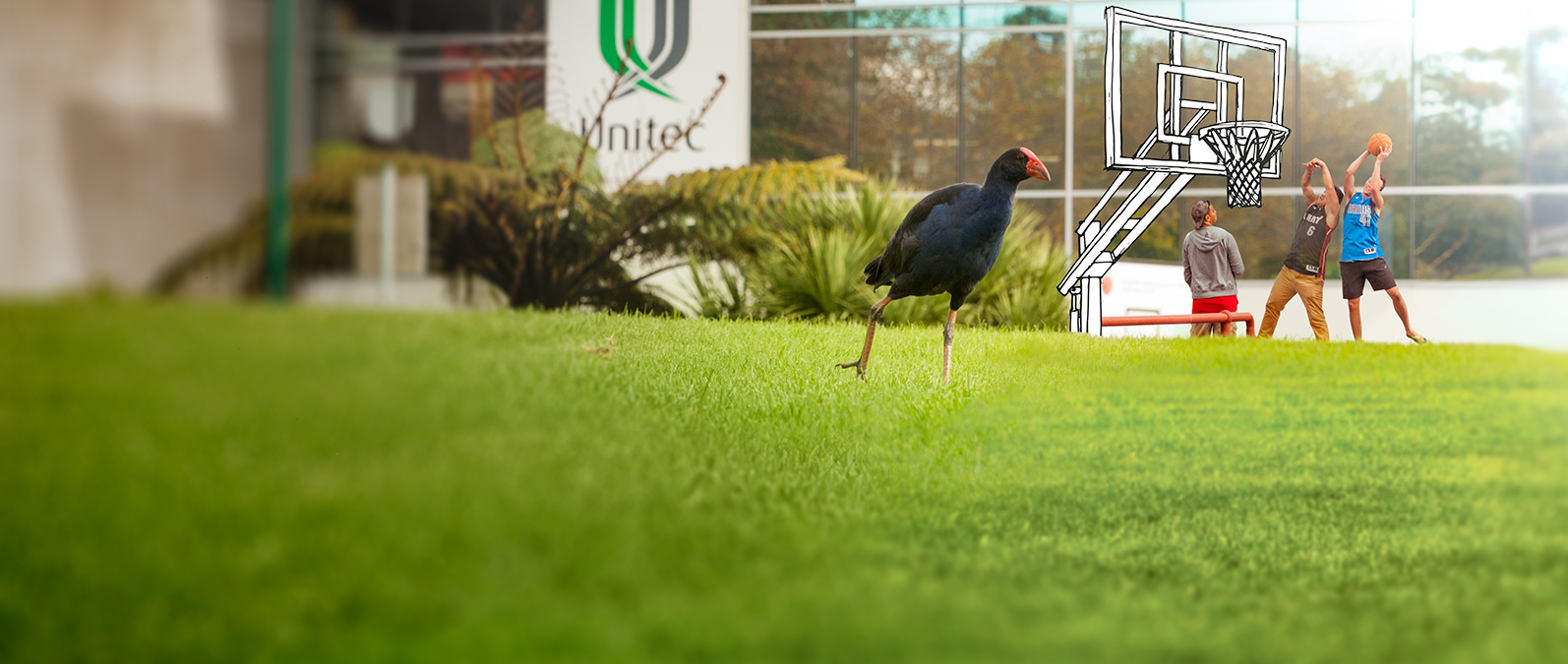Book list
Reading booklists are usually provided by your lecturers at the start of semester. If you are looking for a reading list for your course, please check your course on Moodle or ask your lecturer. You may also check at the Ask Me Desk for reading lists and titles held on short loan or the course reading on the Unitec Library Website.
Campus
The area of land where an institution is based. Unitec has two campuses in Auckland: Mt Albert, and Waitākere.
Certificate
Certificates are offered from levels 2 to 4 and take six months to a year to complete full-time. They can be an introduction to a subject area, preparation for entry into a job or a pathway to higher level study.
Compulsory course
A compulsory course is a course within your programme that you must pass in order to meet the regulations to be eligible to graduate. Current / returning students can find out what courses are compulsory by viewing the study plan for their choice of study which they can get from Moodle or Student Services.
Course
The programme you study is made up of courses. A course usually takes one semester to complete and you usually to need to complete four each semester.
Credits
Credits are points that are attached to each course you study. Each course is worth a number of credits. These credits will add up to the required amount in order to successfully pass the programme. Generally Unitec's courses have 15, 30 , 45 or 60 credits per course (paper). Postgraduate courses can go higher as approved by their Academic Programme Manager. As long as you pass the course you will take the full amount of credits worked towards i.e. the percentage marks do not affect how many credits you achieve.
Credits are referred to as Units in the student portal when enrolling or re-enrolling.
Degree
Bachelors degrees are offered at level 7 and usually take three years to complete full-time.
Department
Subject areas at Unitec are organised into departments. For example, Computing and IT, Nursing and Civil Engineering are all departments.
Diplomas
Diplomas are offered at levels 5 to 6 and usually take one to two years to complete. They’re sometimes needed to enter advanced trade, technical and some professional occupations.
Elective
An elective is a course that you take in addition to the compulsory courses in your programme. It isn’t essential to completing your programme.
Faculty
Departments at Unitec are split into three broad faculties: Creative Industries and Business, Social and Health Sciences, and Technology and Built Environment.
Graduate
When you’ve successfully completed your programme you are a graduate. Graduation is the ceremony where you’re officially awarded your qualification.
Industry Based Learning (IBL)
Completed during your final year of study, IBL gives you the opportunity to put what you’ve learnt into practice by working for a host organisation.
Open Evening
A chance to visit a Unitec campus to meet staff and students and find out more about the programmes on offer.
Orientation
Orientation happens at the start of every semester. It’s a series of events for new students to help you make friends, get settled in and find your way around campus.
Part-time study
Part-time study means that you are enrolled in the minimum required number of courses within your chosen programme to be considered a part-time student. In general, a person studying between 1 to 3 courses or 15 to 45 credits per semester will be classified as a part-time student. According to StudyLink's criteria, fewer than 60 credits per semester or fewer than 105 credits per year is considered to be part-time study. For international students, 3 or more courses (45 credits) per semester is considered full-time and 2 courses (30 credits) or fewer is considered part-time.
Postgraduate
A student who already has a degree (or significant professional experience) and is studying for a second qualification.
Programme
A programme of study is what leads to a qualification, such as a certificate or a degree. It is made up of a number of courses.
Semester
Each academic year is made up of two semesters. Semester one starts in February and semester two starts in July. There is a holiday in between each semester.
StudyLink
A government service that provides financial support to students, including loans and allowances. Find out what’s available to you at www.studylink.govt.nz
Tutorial
A small group-learning session where a few students meet with a tutor to talk about their studies and current projects.
Undergraduate
A student doing their first degree or qualification.
Vocational education
Hands-on, practical education or training that prepares you for an apprenticeship, job or career.
Youth Guarantee
Government-funded scheme that lets 16 and 17-year-olds study for free for up to a year in certain programmes.
